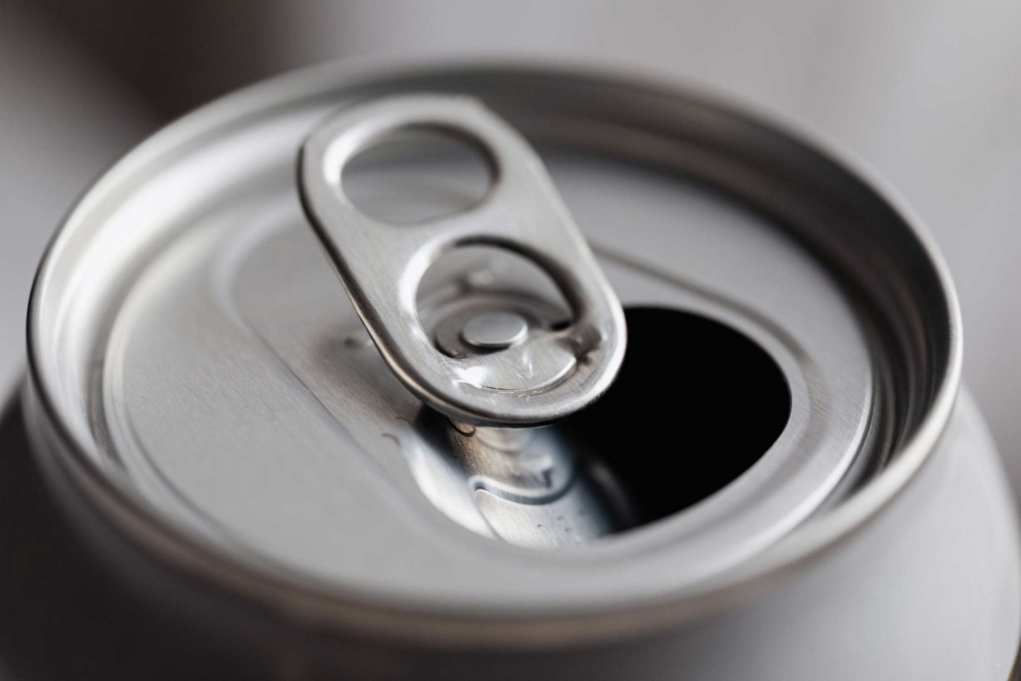
You know you should limit the fizzy stuff in your diet, but does an occasional pop count toward your hydration goals? Read on to find out.
The news about soda hasn’t been good for a while. Sugar-sweetened beverages, including soda, have been linked to an increased risk of obesity, type 2 diabetes, heart disease, and early death, according to the Harvard T.H. Chan School of Public Health. In fact, Harvard ranks soda among the very worst drinks for human health and recommends that people limit their consumption as much as possible.
So it’s a relief to learn that Americans are finally consuming less of the sweet fizzy stuff. The number of adults considered “heavy consumers” of soda — defined as those who guzzle more than 500 calories of soda a day — shrank by 4 percent between 2003 and 2016, while the percentage among children fell by twice that much, according to research published in September 2020 in the Journal of the Academy of Nutrition and Dietetics.
But nearly half of Americans still drink at least one sugar-sweetened beverage a day, according to the most recent data from the Centers for Disease Control and Prevention (CDC). That equates to an average of 145 calories each day from these drinks, most of it from sugar. More people are turning to diet soda, perhaps because they consider it to be a healthier alternative: A full 59 percent of Americans report drinking diet soft drinks regularly, according to the University of Texas at Austin — despite the results of several studies showing that regular diet soda consumption may be associated with increased body weight and blood sugar levels. While causation has not yet been established, it’s at least a reason to reconsider any soda habit, whether it’s diet or regular.
Still, these drinks are liquids, so it’s natural to wonder whether, like other beverages, an occasional soft drink will help hydrate you. Hydration, you’ve probably heard, is essential to your body’s health. Proper fluid balance helps regulate body temperature, keep joints working properly, and plays a role in eliminating waste products, among other functions, according to the Mayo Clinic. Indeed, past research indicates that even slight dehydration, a depletion of only 1 to 2 percent of body water, can lead to impaired cognitive performance.
Individual hydration needs vary by gender, activity level, and even the climate. There is no recommended dietary allowance (RDA) for fluids, but an accurate guide comes from the National Academies of Sciences, Engineering, and Medicine, which recommends that women get about 2.7 liters (L) of fluid per day and men get about 3.7 L per day. About 20 percent of that comes from food, which means women need to drink about 2.2 L (9 eight-ounce cups), and men around 3.0 L (13 eight-ounce cups) of fluids a day.
Water is obviously the best source, but realistically, do sugar-sweetened beverages like soda count toward your daily quota, and if so, how much? Here is what the latest research indicates.
Water vs. Soda: How Do They Compare?
Nutritionally speaking, water is far better for you than any type of soda on the market. A regular cola is about 89 percent water, according to USDA data, which means that almost 11 of the 12 ounces (oz) in a can of soda can be counted toward your fluid intake for the day. But the remainder of what’s in that can should give you pause. Regular soda is absolutely loaded with sugar — that same 12 oz can contains the equivalent of almost nine teaspoons of sugar, according to the USDA.
And while diet soda is technically a calorie-free beverage just like water, you won’t find the same health benefits by any means. In fact, past research found that diet soda drinkers ate more unhealthy foods throughout the day. And a study published in the February 2019 issue of Stroke found that post-menopausal women who drank more than two diet sodas a day had a 23 percent increased risk of stroke and 29 percent increased risk of heart disease compared with those who drank diet soda rarely or never.
It’s also important to note that some varieties of soda contain caffeine, which has been anecdotally linked to a mild diuretic effect. In other words, it may make you urinate more, which could deplete fluid levels. The caffeine level in most sodas is usually low, however (consider that even Mountain Dew, a brand known for its high caffeine content, has just 36 milligrams (mg) of caffeine per cup compared with the 96 mg of caffeine in the same amount of coffee, according to the Mayo Clinic), so the diuretic effect, if any, is minor. The National Academies of Sciences, Engineering, and Medicine refer to the diuretic effects as transient (not long-lasting) and point out that caffeinated beverages can be counted toward hydration needs in the same way as noncaffeinated beverages.
Nutrition Facts for Soda
Regular soda is high in calories, almost all of them from added sugar usually in the form of high fructose corn syrup. According to the USDA, a 12 oz can of cola has 155 calories, and roughly 147 of those calories come from sugar. That is equivalent to almost nine teaspoons of sugar per can. And while so-called healthier and lower sugar sodas have begun to come to market, many still consist of sugar (or artificial sweetener) and water, and aren’t much better from a nutritional standpoint.
Diet soda is technically calorie-free, but that doesn’t make it a great nutritional choice by any means. As mentioned previously, the artificial sweeteners in diet soda have been linked to increased cravings for unhealthy foods. Similarly, other research has linked increased diet soda consumption with increased waist circumference.
What About Soda Makes It Hydrating?
The main ingredient in soda is carbonated water, so it makes sense that the beverage has some hydrating effects even if the remainder of the ingredients are less than ideal. While soda shouldn’t be your go-to for meeting your fluid needs, it can technically be counted toward your hydration goal for the day if you do choose to indulge.
Soda vs. Seltzer: Which Is More Hydrating?
Seltzer is the better choice here all around! While it’s only slightly more hydrating than soda, it doesn’t contain any of the added sugar or artificial sweeteners that soda does, and it is naturally caffeine-free. If soda is a habit that you’re looking to break or cut back on, seltzer can be a great substitute, since it satisfies the craving for something cold and fizzy. Plus, there are lots of flavor options available on the market, and if one of those doesn’t appeal to you, you can always doctor your seltzer by adding a splash of citrus or fruit juice.
Health Benefits of Soda Beyond Hydration
There are absolutely zero health benefits to drinking soda. Whether regular or diet, caffeinated or caffeine-free, all sodas have negative health effects. In addition to all the sugar, Harvard points out that soda contains high levels of phosphate (a natural form of phosphorus that can have negative effects on the body per research published in the October 2016 Kidney International), which has been linked to decreased bone health.
The sugar and acid in most sodas is also bad for your dental health, according to research, and can lead to the erosion of tooth enamel and cause cavities. Regular consumption of sugary beverages such as soda has been linked to increased risk of overweight and obesity, diabetes, heart disease, and gout, and a large study published in the journal Circulation in March 2019 showed that the more sugary beverages people consumed, the more likely they were to die prematurely. In other words, whether your goal is better hydration or improved overall health, your best bet is to limit soda as much as possible.
Tips for Minimizing Soda to Maximize Hydration and Health
If you find yourself reaching for soda often, consider taking small steps to cut back over time. As mentioned above, people often find seltzer to be a satisfying substitute for soda because it’s carbonated. Citrus juice, fresh or frozen fruit, or fresh mint can all be added to plain seltzer for flavor. The best part is that seltzer contains no added sugar and can be counted toward your fluid intake for the day without derailing your health.
Should You Drink Soda to Stay Hydrated?
Almost every beverage on the market and from the tap is a better option than soda. Both sugar-sweetened and artificially sweetened soda products have been linked to deleterious health effects. While soda is technically hydrating, you’re much better off choosing a healthier beverage that helps you meet both your hydration and your overall health goals.
Important Notice: This article was originally published at www.everydayhealth.com by Kelly Kennedy, RDN where all credits are due. Medically Reviewed by Lynn Grieger, RDN, CDCES.
Disclaimer
The watching, interacting, and participation of any kind with anything on this page does not constitute or initiate a doctor-patient relationship with Dr. Farrah®. None of the statements here have been evaluated by the Food and Drug Administration (FDA). The products of Dr. Farrah® are not intended to diagnose, treat, cure, or prevent any disease. The information being provided should only be considered for education and entertainment purposes only. If you feel that anything you see or hear may be of value to you on this page or on any other medium of any kind associated with, showing, or quoting anything relating to Dr. Farrah® in any way at any time, you are encouraged to and agree to consult with a licensed healthcare professional in your area to discuss it. If you feel that you’re having a healthcare emergency, seek medical attention immediately. The views expressed here are simply either the views and opinions of Dr. Farrah® or others appearing and are protected under the first amendment.
Dr. Farrah® is a highly experienced Licensed Medical Doctor certified in evidence-based clinical nutrition, not some enthusiast, formulator, or medium promoting the wild and unrestrained use of nutrition products for health issues without clinical experience and scientific evidence of therapeutic benefit. Dr. Farrah® has personally and keenly studied everything she recommends, and more importantly, she’s closely observed the reactions and results in a clinical setting countless times over the course of her career involving the treatment of over 150,000 patients.
Dr. Farrah® promotes evidence-based natural approaches to health, which means integrating her individual scientific and clinical expertise with the best available external clinical evidence from systematic research. By individual clinical expertise, I refer to the proficiency and judgment that individual clinicians acquire through clinical experience and clinical practice.
Dr. Farrah® does not make any representation or warranties with respect to the accuracy, applicability, fitness, or completeness of any multimedia content provided. Dr. Farrah® does not warrant the performance, effectiveness, or applicability of any sites listed, linked, or referenced to, in, or by any multimedia content.
To be clear, the multimedia content is not intended to be a substitute for professional medical advice, diagnosis, or treatment. Always seek the advice of your physician or other qualified health providers with any questions you may have regarding a medical condition. Never disregard professional medical advice or delay in seeking it because of something you have read or seen in any website, video, image, or media of any kind. Dr. Farrah® hereby disclaims any and all liability to any party for any direct, indirect, implied, punitive, special, incidental, or other consequential damages arising directly or indirectly from any use of the content, which is provided as is, and without warranties.








